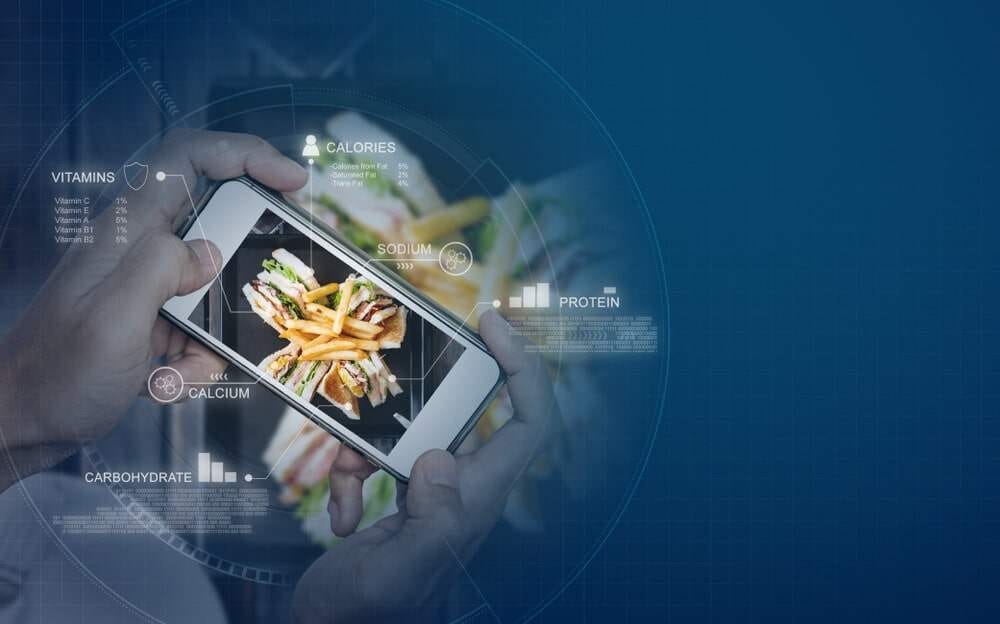
AI provides individualistic diet plans by considering the food requirements, preferences, nutrition levels, and required dietary variety. Personalization will allow specific health goals and well-being through diet
Personalized Diet Plans and how Artificial Intelligence (AI) is reshaping the way we approach nutrition. As you know, maintaining a healthy diet is key to living a long and happy life, but with so much conflicting information about what’s best to eat, it can be a bit confusing. This is where the power of technology, especially AI, comes into play.
The Evolution of Nutrition and Diet Plans
For generations, we relied on traditional methods to maintain our health. We followed advice from family, doctors, and sometimes even local elders like me! When I was your age, we didn’t have access to all the fancy gadgets and scientific research that people have today. People simply ate what they could grow, or what was locally available. Over time, however, as our understanding of food and its effects on the body deepened, so did our approach to health.
In the past century, nutrition science advanced greatly, and the idea of personalized diets started to take shape. Doctors and dietitians began to suggest eating plans based on individual needs—such as age, weight, and activity level. But now, with AI making waves across various industries, the ability to customize nutrition has entered a whole new era.
What Are Personalized Diet Plans?
A personalized diet plan is one that takes into account your unique characteristics, health goals, lifestyle, and preferences. Instead of following a one-size-fits-all approach, a personalized plan looks at specific aspects of your life, such as:
- Age
- Gender
- Height and weight
- Activity levels
- Health conditions (like diabetes or heart disease)
- Food preferences (vegetarian, vegan, or specific allergies)
- Genetic predispositions (based on DNA analysis)
- The goal of these personalized plans is to help individuals eat in a way that not only promotes general well-being but also addresses their unique needs. For example, someone with a family history of heart disease might benefit from a heart-healthy diet, while an athlete might need more protein to fuel their performance. Traditional diets often didn’t account for these nuances, but now, we’re seeing how AI can provide more accurate and tailored recommendations.
- The Role of AI in Personalized Diet Plans
- Artificial Intelligence is a rapidly growing field that uses data, algorithms, and advanced computing to solve problems, make decisions, and predict outcomes. So, what does AI have to do with food?
- AI is increasingly being used in the field of nutrition to create more precise and effective personalized diet plans. Here’s how:
- 1. Data Collection and Analysis
- AI can analyze massive amounts of data far more quickly and accurately than a human could ever do. It can take in a person’s age, health conditions, genetic makeup, activity levels, food preferences, and more to generate recommendations. This data-driven approach allows for a more individualized diet plan that’s far more likely to be effective.
- 2. Genetic Information and Nutrigenomics
- Have you ever heard of nutrigenomics, dear? It’s the study of how our genes affect our nutritional needs. Thanks to AI, we can now take genetic testing to understand how our bodies process certain nutrients and foods. For example, some people may metabolize fats more efficiently, while others may need more carbohydrates for energy. AI can interpret this genetic data to help design diets that align with our genetic profile.
- 3. Real-time Feedback and Adjustments
- What’s wonderful about AI is that it doesn’t just create a diet plan and leave you to follow it blindly. AI can track how your body responds to the diet through apps or devices, and adjust the recommendations as needed. If you’re not losing weight, or if you’re feeling tired or sluggish, AI can suggest changes like adding more fiber or protein, or altering your meal timing. This real-time feedback is a key factor that makes AI so powerful for personalized nutrition.
- 4. Behavioral Insights and Motivation
- Staying consistent with a diet plan can be difficult. You know how we can sometimes be tempted by sweets or eat out of habit? AI is also capable of tracking behavioral patterns and offering motivation. It can offer reminders, suggest healthier food options,
- or even help you visualize your progress, making it easier to stick to your goals.
- Why Personalized Diet Plans Matter
- You might be wondering, “Why not just eat a standard healthy diet?” While general guidelines like eating fruits, vegetables, and whole grains are beneficial for everyone, not all foods are equal for each person. Our bodies respond differently to various nutrients, and what works for one person may not work for another.
- Here are some reasons why personalized diet plans are essential:
- 1. Optimal Health and Disease Prevention
- A personalized diet plan helps prevent and manage chronic conditions like obesity, diabetes, and high blood pressure. For example, someone with high cholesterol may benefit from a diet low in saturated fats, while someone with high blood sugar might need a low-carb plan. The customization of diets is one of the most effective ways to keep diseases at bay.
- 2. Sustainable Weight Loss
- For many people, losing weight is a major concern. The right diet plan, based on your body’s unique needs, can help make weight loss more sustainable. Rather than trying the latest diet fad, a personalized plan considers your metabolism, activity level, and eating habits, allowing you to achieve and maintain your ideal weight.
- 3. Better Digestion and Energy Levels
- Some people have trouble digesting certain foods, like dairy or gluten. A personalized diet can help avoid foods that cause discomfort, leading to better digestion and increased energy.
- When your body gets the right fuel, you feel better and have more vitality to tackle your day.
- 4. Mental Well-being
- Our food choices don’t just affect our bodies—they can impact our mental health too. Nutrient-rich foods are linked to better mood regulation and improved cognitive function. A personalized diet that caters to your unique brain chemistry could help you feel happier, more focused, and less stressed.
- Is AI the Future of Nutrition?
- So, my dear, you may be wondering: Is AI really the future of nutrition? The answer, I believe, is yes, but with some considerations.
- AI holds tremendous potential to revolutionize the way we approach diet and nutrition. It can make personalized plans more accessible and accurate, allowing people to achieve better health outcomes. However, AI is not a magic solution. It still needs human expertise to ensure that the data used is accurate, and the advice given is balanced. Dietitians, doctors, and other health professionals will always play a critical role in interpreting the data and ensuring that it fits each individual’s specific needs.
- Additionally, there is the matter of technology access. Not everyone has the means or knowledge to take advantage of AI-based tools. For AI to truly be the future of nutrition, it must be accessible and understandable to all people, no matter their age or socioeconomic status.
- In the end, I believe AI will serve as a valuable tool in the ongoing journey toward personalized nutrition. It will assist dietitians, doctors, and individuals like you in creating diets that are as unique as you are.
- Q&A Section
- Ques1: Can AI make personalized diet plans without professional input?
- Ans: While AI can analyze data and suggest a diet plan, professional input is still important. A doctor or dietitian can interpret the results and ensure that the plan is safe and appropriate for the individual’s health conditions.
- Ques2: Is it expensive to use AI for personalized nutrition?
- Ans: The cost can vary depending on the service or app you choose. Some apps offer basic features for free, while others may charge a subscription fee for more advanced tools, like DNA analysis or real-time tracking. But as technology advances, prices may decrease.
- Ques3: Can AI help with specific health conditions like diabetes or heart disease?
- Ans: Yes, AI can create diet plans tailored to specific health conditions. It can analyze your medical history, symptoms, and genetic information to suggest foods that are beneficial for managing these conditions.
- Ques4: How accurate are AI-based diet plans?
- Ans: AI-based die ommendations. It’s important to monitor how your body responds and adjust accordingly
